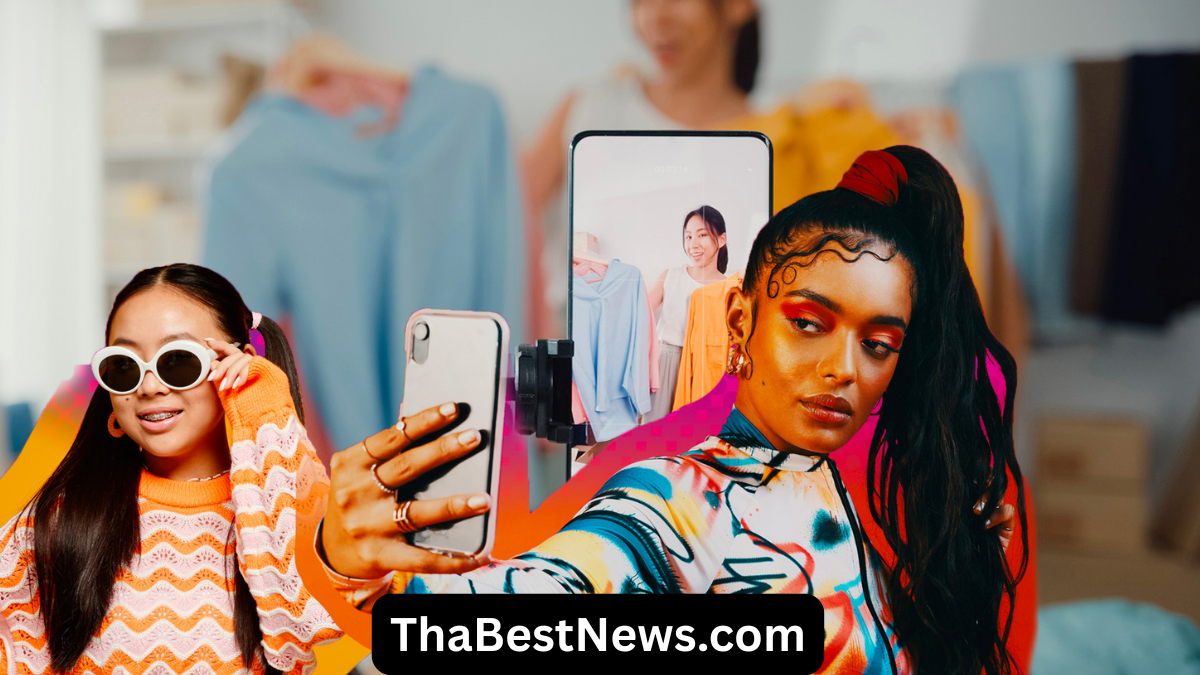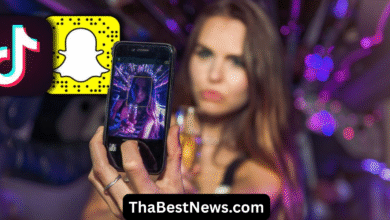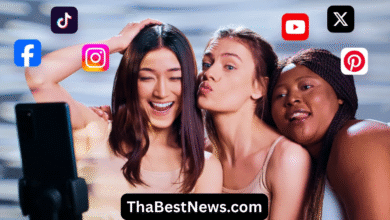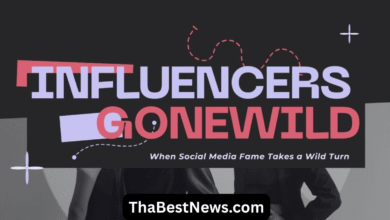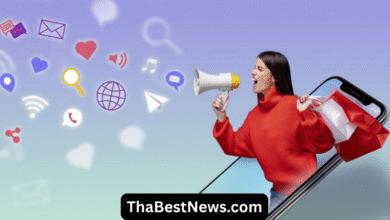Introduction
The Rise of the Influencer Era
Influencers Goneeild It’s no secret that influencers are the new celebrities. From Instagram models to TikTok comedians, these internet icons have rewritten what it means to be famous. But unlike traditional celebs, influencers often lack PR handlers or studio guidelines. They’re raw, unfiltered, and sometimes—completely unhinged.
When Influence Turns Irresponsible
With great power comes… questionable judgment? That’s what happens when influencers go wild. It’s not just about parties or silly videos. Sometimes, it’s fraud, deceit, or putting others in danger—all for likes, shares, and cash.
Defining ‘Gone Wild’ in the Influencer Context
Not Just Partying—It’s About Power Misuse
When we say “Influencers Goneeild” we’re not talking about spring break antics. We’re talking about influencers who exploit their audience, cross ethical lines, or act recklessly just to go viral. Some lose their moral compass completely.
Social Media Virality and Scandal Culture
It only takes one post. One shocking clip, and you’re viral. In this race to trend, influencers sometimes stage fake crimes, abuse their reach, or mislead fans. Outrage gets attention—and attention pays.
Notorious Cases of Influencers Going Rogue
The YouTuber Who Faked Their Death
Yes, really. Some influencers have gone as far as faking their death, just to reappear days later with a dramatic “I’m back” video. The views? Millions. The trust? Completely shattered.
TikTok Pranksters and the Public Backlash
From harassing store employees to dangerous stunts in public, TikTok pranksters have sparked lawsuits, bans, and even public outcry. A few seconds of laughter online often equals real-world consequences.
The Instagram Model Who Crossed Legal Lines
Several high-profile cases involve Instagram stars running illegal businesses, scamming followers with fake products, or even engaging in criminal activity while livestreaming.
What Fuels This Wild Behavior?
The Pressure to Stay Relevant
Today’s algorithm doesn’t care about yesterday’s post. Influencers live in a pressure cooker of constant content creation. Some feel forced to escalate—more shock, more drama, more attention.
Instant Fame and Lack of Accountability
When someone goes from nobody to viral overnight, they don’t always have the emotional or ethical framework to handle it. Suddenly, they’re role models—with no clue how to act like one.
Monetization and Shock Value
Sadly, bad behavior sells. Brands, clicks, and ad revenue often pour in when controversy hits. Going wild becomes a business strategy.
The Role of Followers and Fan Culture
The Mob Mentality of Online Audiences
Fans can be fiercely loyal—sometimes to a fault. Influencers often feel untouchable with millions of fans defending their every move, even the ugly ones.
Cancel Culture vs. True Accountability
While cancel culture often calls out bad behavior, it’s not always consistent. Some influencers bounce back with a tearful apology video, while others vanish into internet oblivion.
Platforms Playing Judge and Jury
How YouTube, TikTok, and Instagram Respond
These platforms have started cracking down on wild behavior. Demonetization, content takedowns, and shadowbans are increasingly common. But enforcement is still hit or miss.
Shadowbans, Suspensions, and De-platforming
Some influencers get banned outright. Others quietly vanish from search results or have their accounts throttled. It’s a silent, slow burn to digital death.
Legal Consequences of Going Too Far
When Influence Turns Criminal
Think influencers can’t be arrested? Think again. From fraud to endangerment to defamation, many have faced real legal heat for online antics.
Real Cases of Arrests and Charges
Remember the influencer who filmed a fake robbery? Arrested. The one who assaulted someone during a prank? Charged. Digital doesn’t mean untouchable.
The Impact on Younger Audiences
Setting Poor Examples
Many fans are teens or even younger. When influencers act recklessly, it sends the message: wild equals cool. That’s dangerous.
Normalizing Toxic Behavior
Trolling, scamming, and filming strangers without consent becomes normalized. It erodes empathy and ethics among impressionable fans.
Mental Health and the Influencer Lifestyle
The Toll of Constant Performance
Being “on” 24/7 isn’t natural. The influencer life demands constant validation and exposure. That can crack anyone.
Breakdown, Burnout, and Breakups
Many influencers eventually burn out—publicly. Emotional breakdowns, messy breakups, and even hospitalization aren’t uncommon.
Redemption Stories: Can They Make a Comeback?
Influencers Who Owned Up and Changed
Some do turn things around. They apologize sincerely, change their content, and grow. And fans? They often forgive.
The Role of Sincere Apologies
A genuine apology isn’t just words. It’s action. And when influencers back it up with change, redemption is possible.
Society’s Obsession with Online Drama
Why We Can’t Look Away
We’re wired to love drama. Watching influencers spiral is like a real-time soap opera. It’s addictive.
Schadenfreude in the Digital Age
We love watching people rise—but we love watching them fall even more. It’s twisted, but it’s human.
Preventing the Madness
Influencer Education and Digital Literacy
What if creators were trained before going viral? Teaching ethics, boundaries, and responsibilities could prevent a lot of chaos.
Encouraging Ethical Influence
Brands and followers have power too. If they reward good behavior instead of drama, influencers will follow suit.
The Future of Influencing: Wild or Wise?
Trends Toward Transparency
More influencers now share mental health struggles, real-life challenges, and honest content. That’s a good sign.
Rise of Value-Driven Creators
The future may belong to influencers who stand for something more than views—like values, truth, and positivity.
Conclusion
Influencers going wild isn’t new—but it’s more visible, more viral, and more dangerous than ever. The online stage has no curtains, and every move is watched, judged, and reacted to. influencers goneeild some cross the line for fame, others use their platform to grow and inspire. The choice lies with them—and us, the viewers. Let’s hope the next generation of influencers chooses wisdom over wild.
FAQs
Q1: Why do influencers go ‘wild’?
A: Often, it’s a mix of pressure to stay relevant, instant fame, lack of guidance, and the lure of monetizing controversy.
Q2: Can influencers get arrested for their actions?
A: Absolutely. Many have faced legal consequences for fake crimes, harassment, or fraud.
Q3: What’s the role of platforms in influencer behavior?
A: Platforms like YouTube or TikTok can penalize influencers via bans, demonetization, or shadowbans, though consistency varies.
Q4: Is cancel culture helping or hurting?
A: It depends. Sometimes it enforces influencers goneeild accountability; other times, it becomes a witch hunt lacking nuance or fairness.
Q5: Can influencers recover from a scandal?
A: Yes—if they take responsibility, genuinely change, and rebuild trust over time.
